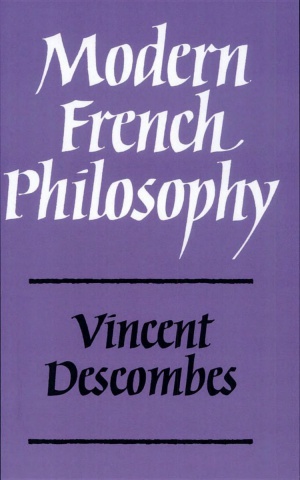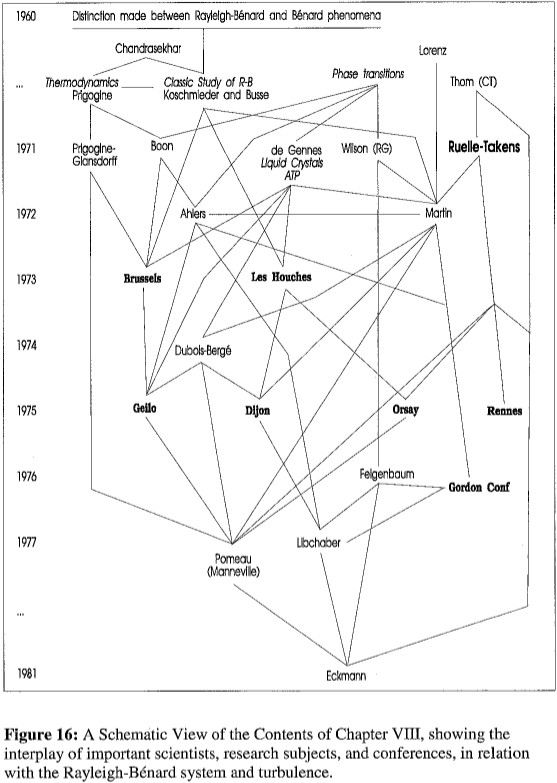Philippe Descola: Beyond Nature and Culture (2005–)
Filed under book | Tags: · animism, anthropology, cognitive science, culture, ecology, human, metaphysics, nature, ontology, relation, structuralism, totemism

“Philippe Descola has become one of the most important anthropologists working today, and Beyond Nature and Culture has been a major influence in European intellectual life since its French publication in 2005. At its heart is a question central to both anthropology and philosophy: what is the relationship between nature and culture?
Culture—as a collective human making, of art, language, and so forth—is often seen as essentially different from nature, which is portrayed as a collective of the nonhuman world, of plants, animals, geology, and natural forces. Descola shows this essential difference to be, however, not only a specifically Western notion, but also a very recent one. Drawing on ethnographic examples from around the world and theoretical understandings from cognitive science, structural analysis, and phenomenology, he formulates a new framework, the “four ontologies”— animism, totemism, naturalism, and analogism—to account for all the ways we relate ourselves to nature.”
First published as Par-delà nature et culture, Gallimard, Paris, 2005.
Translated by Janet Lloyd
Foreword by Marshall Sahlins
Publisher University of Chicago Press, 2013
ISBN 0226144453, 9780226144450
xxii+463 pages
Reviews: David Berliner (Anthropological Quarterly, 2010), Des Fitzgerald (Somatosphere, 2013), Gildas Salmon & Pierre Charbonnier (Journal of the Royal Anthropological Institute, 2014), Céline Grandjou (Humanimalia, 2014), Tim Frandy (Journal of Folklore Research, 2014), Michael W. Scott (Anthropology of This Century, 2014), Voytek Lapinski (n.d.).
Book symposium: Lenclud, Helmreich, Feuchtwang, Kapferer, Toren, Lambek, Coelho de Souza, Descola (Journal of Ethnographic Theory, 2014, pp 363-443).
Comment (0)Vincent Descombes: Modern French Philosophy (1979–) [EN, ES, GR, CZ, RU]
Filed under book | Tags: · dialectic, history of philosophy, phenomenology, philosophy, structuralism

“This is a critical introduction to modern French philosophy, commissioned from one of the liveliest contemporary practitioners and intended for an English-speaking readership. The dominant ‘Anglo-Saxon’ reaction to philosophical development in France has for some decades been one of suspicion, occasionally tempered by curiosity but more often hardening into dismissive rejection. But there are signs now of a more sympathetic interest and an increasing readiness to admit and explore shared concerns, even if these are still expressed in a very different idiom and intellectual context.
Vincent Descombes offers here a personal guide to the main movements and figures of the last forty-five years. He traces over this period the evolution of thought from a generation preoccupied with the ‘three H’s’ – Hegel, Husserl and Heidegger, to a generation influenced since about 1960 by the ‘three masters of suspicion’ – Marx, Nietzsche and Freud. In this framework he deals in turn with the thought of Sartre, Merleau-Ponty, the early structuralists, Foucault, Althusser, Serres, Derrida, and finally Deleuze and Lyotard. The ‘internal’ intellectual history of the period is related to its institutional setting and the wider cultural and political context which has given French philosophy so much of its distinctive character.” (from the back cover, 1980)
First published in French as Le Même et L’Autre, Les Éditions de Minuit, Paris, 1979
English edition
Translated by L. Scott-Fox and J. M. Harding
With a Foreword by Alan Montefiore
Publisher Cambridge University Press, 1980
ISBN 0521296722
192 pages
Review (Robert Young, MLN, 1982)
Review (Alasdair MacIntyre, London Review of Books, 1981)
Interview with the author (Praxis, 2012/2013)
Publisher (EN)
Modern French Philosophy (English, trans. L. Scott-Fox and J. M. Harding, 1980, no OCR)
Lo mismo y lo otro: cuarenta y cinco años de filosofía francesca (1933-1978) (Spanish, trans. Elena Benarroch, 2nd ed., 1982/1988, pp 12-15 missing, no OCR)
Το Ίδιο και το Άλλο: 45 χρόνια γαλλικής φιλοσοφίας 1933-1978 (Greek, trans. Λένα Κασίμη, 1984)
Stejné a jiné: Čtyřicetpět let francouzské filosofie (1933-1978) (Czech, trans. Miroslav Petříček jr, 1995, no OCR)
Sovremennaya frantsuzskaya filosofiya (Russian, trans. M.M. Fedorov, 2000, DJVU)
David Aubin: A Cultural History of Catastrophes and Chaos: Around the Institut des Hautes Études Scientifiques, France 1958-1980 (1998)
Filed under thesis | Tags: · biology, catastrophe theory, chaos theory, history of mathematics, history of science, linguistics, mathematics, oulipo, physics, science, semiotics, structuralism, turbulence
“This is the story of a group of scientists who, in the local context of the Institut des Hautes Études Scientifiques (IHÉS), France, contributed to the elaboration of catastrophe theory and deterministic chaos theory. Starting with a study of the role of Bourbaki’s mathematics on the French intellectual scene (and especially with respect to structuralism), this dissertation examines the resources from topology, embryology, and linguistics used by René Thom to construct catastrophe theory.
It describes the foundation of the IHÉS by Léon Motchane in 1958 and the ideology of fundamental research that shaped it. It reviews the history of structural stability for differential equations, focusing on the work of Aleksandr Andronov and Solomon Lefschetz, among others, and the synthesis achieved in the 1960s by Stephen Smale at the University of California, Berkeley. These mathematical developments were used by Thom to develop new modeling practices. The IHÉS, which welcomed topologists such as E. Christopher Zeeman and Ralph Abraham, played a role in developing modeling practices based on recent advances in topology. A physics professor at the IHÉS, David Ruelle, together with Dutch mathematician Floris Takens, adapted the modeling practices of these ‘applied topologists’ and proposed a mechanism for the onset of turbulence, thereby introducing the concept of strange attractors. Looking at the history of fluid mechanics, I argue that Ruelle’s work displaced earlier emphases on fundamental laws, like the Navier-Stokes equations, and focused on the modes of representation rather than representations themselves. A certain Bourbakization of physics and the advent of the computer shaped this evolution.
Finally, focusing on convention, and taking the Rayleigh-Bénard system as a boundary system, various communities’ responses to the Ruelle-Takens model are examined, in particular hydrodynamic stability theorists, phase transition physicists and Pierre-Gilles de Gennes’s group, and chemical physicists orbiting Ilya Prigogine. Prior interest in developing interdisciplinary approaches for the study of turbulence helped the adaptation of a dynamical systems approach for the study of natural phenomena, greatly inspired by the work of Smale, Thom, and Ruelle.” (Abstract)
Ph. D. thesis
Princeton University
782 pages
single PDF (final section “Sources and Bibliography” missing; no OCR)
PDF chapters (from the author’s website)


